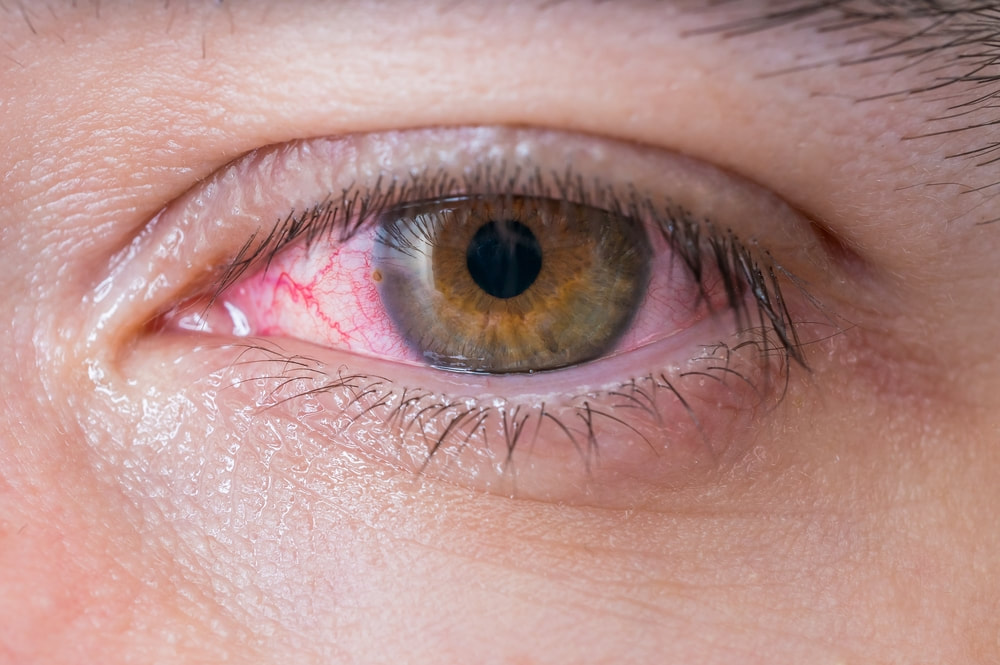Keep reading below to learn how to tell the difference between eye irritation caused by dry eyes, allergies, or an infection.
Is it dry eyes?
Dry eyes can develop for a variety of reasons, such as a change in hormone levels that affects tear production. Some people also have a medical condition that increases their risk of dry eyes. For example, lupus, rheumatoid arthritis, and thyroid disorders can all lead to dry eyes. Different types of medication can also increase your risk of dry eyes as a side effect.
If you have dry eyes, you may have irritation and burning in your eyes. One way to tell irritation from dry eyes from other causes is the frequency. If symptoms occur often, it might be related to chronic dry eye syndrome. Recognizing eye allergies
Eye allergy symptoms can develop after exposure to various allergens. When someone has an allergy, their body reacts to a substance as if it was harmful. This causes a release of histamine by cells in the immune system. Histamine causes allergy symptoms, such as watery eyes, redness, and itching.
A good way to tell eye allergy irritation from other causes is when symptoms start. If symptoms tend to occur after exposure to a particular substance, it might be an allergic reaction. How to know if irritation is due to an eye infection
Eye infections can be a result of a bacterial, fungal, or viral infection. Eye irritation is common with an eye infection.
One of the best ways to tell if irritation is due to an eye infection is by the other symptoms present. Eye infections tend to have more symptoms than eye allergies or dry eye syndrome. For example, pain, sensitivity to light, and a thick discharge from the eyes are common with an eye infection but not allergies or dry eyes. Below is a chart listing the differences in symptoms between eye allergies, infections, and dry eyes. Treatment
Eye irritation might have different treatments depending on the cause. For example, an eye infection needs a different treatment than allergies affecting the eyes. Treating the underlying causes is important.
To ease symptoms of irritation and burning, home treatment may help, such as:
When to see a doctor
If you occasionally get irritated eyes with few other symptoms, at-home treatment may be all that is needed, but there might be other instances when it is helpful to see a doctor, such as in the following cases:
If you are unsure what is causing your eye irritation, we are happy to help. Also, if you would like to ask whether an appointment with one of our eye doctors would be appropriate at this time, call our office at 508-746-8600.
Comments are closed.
|
EYE HEALTH BLOGCategories
All
Archives
July 2024
|
|
Kadrmas Eye Care New England
55 Commerce Way, Plymouth, MA 02360
14 Tobey Road, Wareham, MA 02571 133 Falmouth Road (Rt 28), Mashpee, MA 02649 |
Phone Number:
1-508-746-8600 Hours: Monday through Friday — 8 AM – 4:30 PM |


 RSS Feed
RSS Feed
